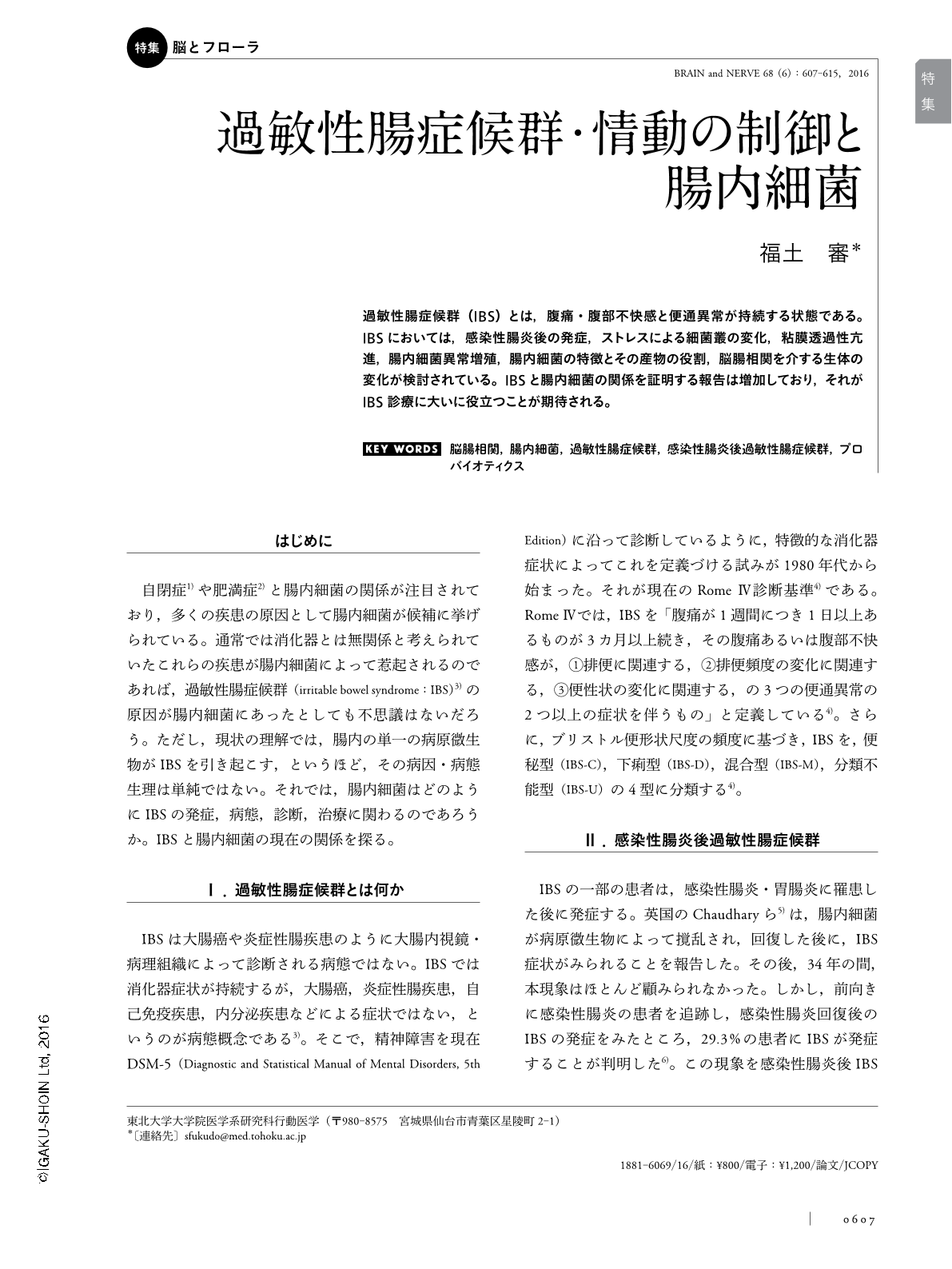Japanese
English
- 有料閲覧
- Abstract 文献概要
- 1ページ目 Look Inside
- 参考文献 Reference
過敏性腸症候群(IBS)とは,腹痛・腹部不快感と便通異常が持続する状態である。IBSにおいては,感染性腸炎後の発症,ストレスによる細菌叢の変化,粘膜透過性亢進,腸内細菌異常増殖,腸内細菌の特徴とその産物の役割,脳腸相関を介する生体の変化が検討されている。IBSと腸内細菌の関係を証明する報告は増加しており,それがIBS診療に大いに役立つことが期待される。
Abstract
Irritable bowel syndrome (IBS) is defined as a representative functional gastrointestinal disorder which is characterized by chronic or recurrent abdominal pain and/or abdominal discomfort associated with abnormal bowel movement. Gut microbiota are related to the pathophysiology of IBS. In the field of IBS, post-infectious etiology, stress-induced alteration of microbiota, increased mucosal permeability, bacterial overgrowth, disease-specific microbiota, microbial products, and brain-gut interactions are being investigated. In some individuals, IBS develops after recovery from acute gastroenteritis known as post-infectious IBS. Gut microbiota in IBS patients differ from those in healthy individuals, and the profiles of gut microbiota in IBS patients also vary among IBS patients with constipation, diarrhea, and mixed subtypes. In Japan, gut microbiota in IBS patients also differ from those observed in healthy individuals, and organic acid by-products observed in the patients correlated with symptoms, quality of life, and alexithymia. Further research on gut microbiota in IBS patients is warranted.

Copyright © 2016, Igaku-Shoin Ltd. All rights reserved.


